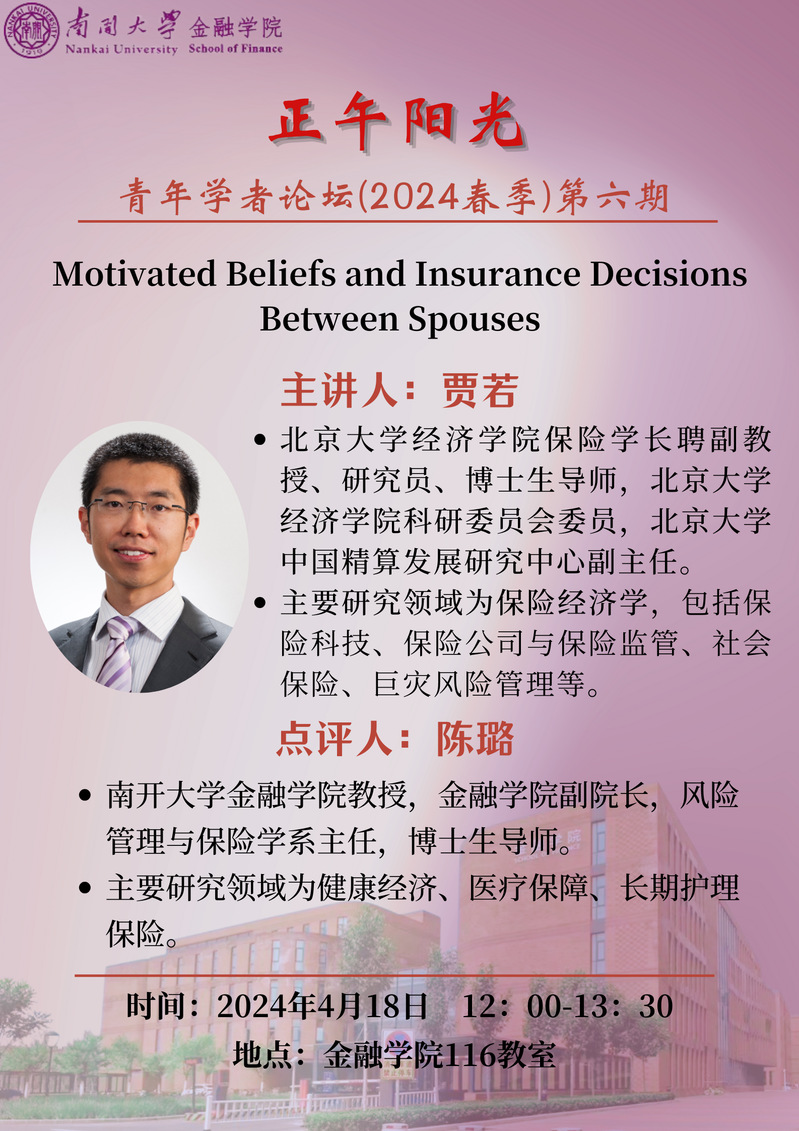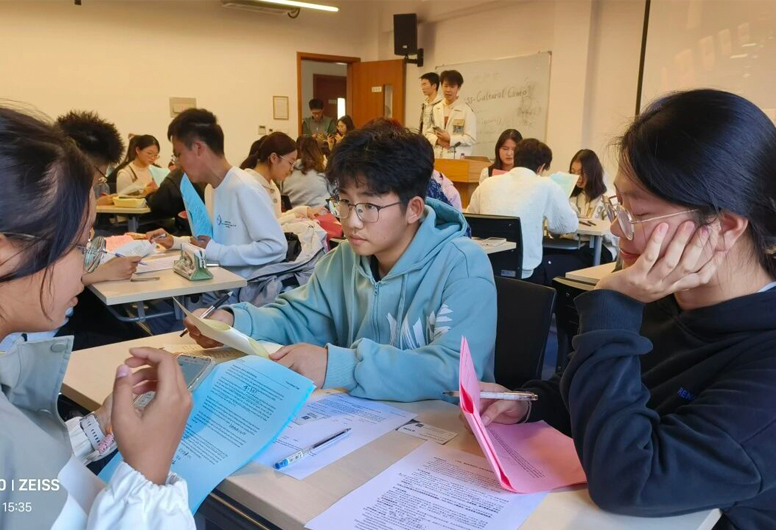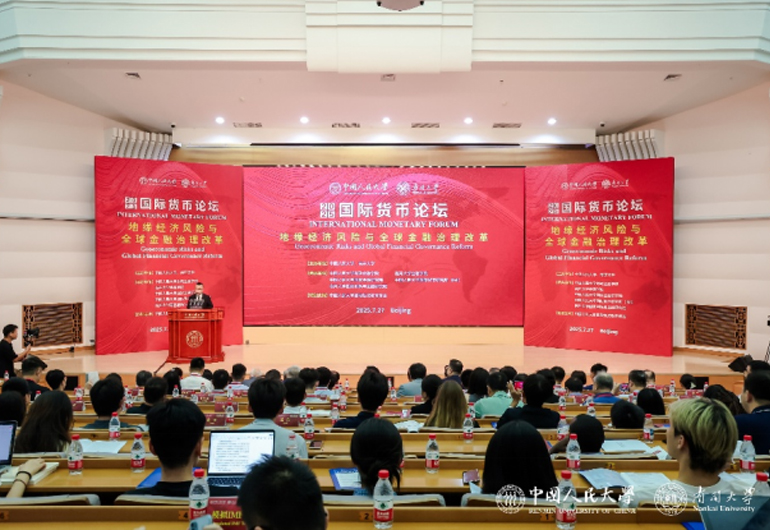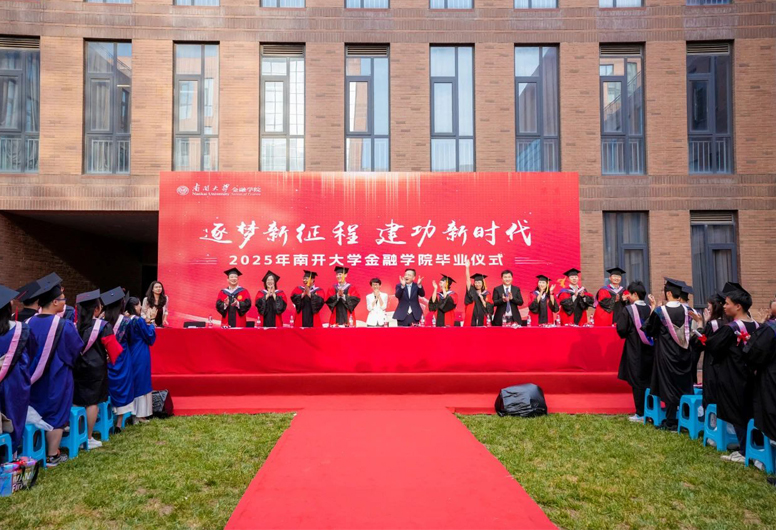Advance Notice: the Sixth Session of Noon Sunshine-Young Scholars Seminar (the Spring in 2024)
“Noon Sunshine-Young Scholars Seminar” is a regular academic exchange platform held by School of Finance. It aims to offer valuable occasions of communications among scholars in our college, between teachers and students, the domestic and the oversea. In this semester, we keep our original intention, set off for a new voyage. We will devote ourselves to fostering the academic atmosphere in the college, and promoting the academic level for both teachers and students.
The sixth session of “Noon Sunshine-Young Scholars Seminar” for the Spring Semester in 2024 is arranged as follows:
Lecture topic:Motivated Beliefs and Insurance Decisions Between Spouses
Keynote Speaker: Jia Ruo
Commentator: Chen Lu
Date:Thursday, April 18th, 2024
Time:12:00-13:00
Lecture Venue:Room 116, School of Finance
Abstract
We investigate insurance decisions between spouses using field data from an insurtech company. Empirical analyses reveal that individuals purchase significantly more insurance for their spouses than for themselves. Moreover, they seem to be less responsive to their own health information compared to that of their spouses. We attribute this insurance gap between spouses partly to motivated beliefs that individuals tend to believe they are healthier than their spouses. We also find the insurance gap can be due to mutual supports within couples. Especially, the insurance gap between spouses is larger when individuals perceive their spouses as not paying sufficient attention to their health risks, being less risk-averse, or facing financial constraints. We further verify the motivated beliefs channel with a survey experiment and provide supporting evidence. We collect direct evidence on individuals’ beliefs of health risks. On average, respondents believe that their and their spouses’ health risks compared with people of their or their spouses’ age and gender are smaller. We also find that more people believe that they are healthier than their spouses. The sur-vey experiment also documents evidence for the insurance gap between spouses and motivated beliefs with a different population, while having more control variables.









